Review: Cathay Pacific A321neo business class, economy class
Executive Traveller puts Cathay’s latest regional business class and economy class to the test.
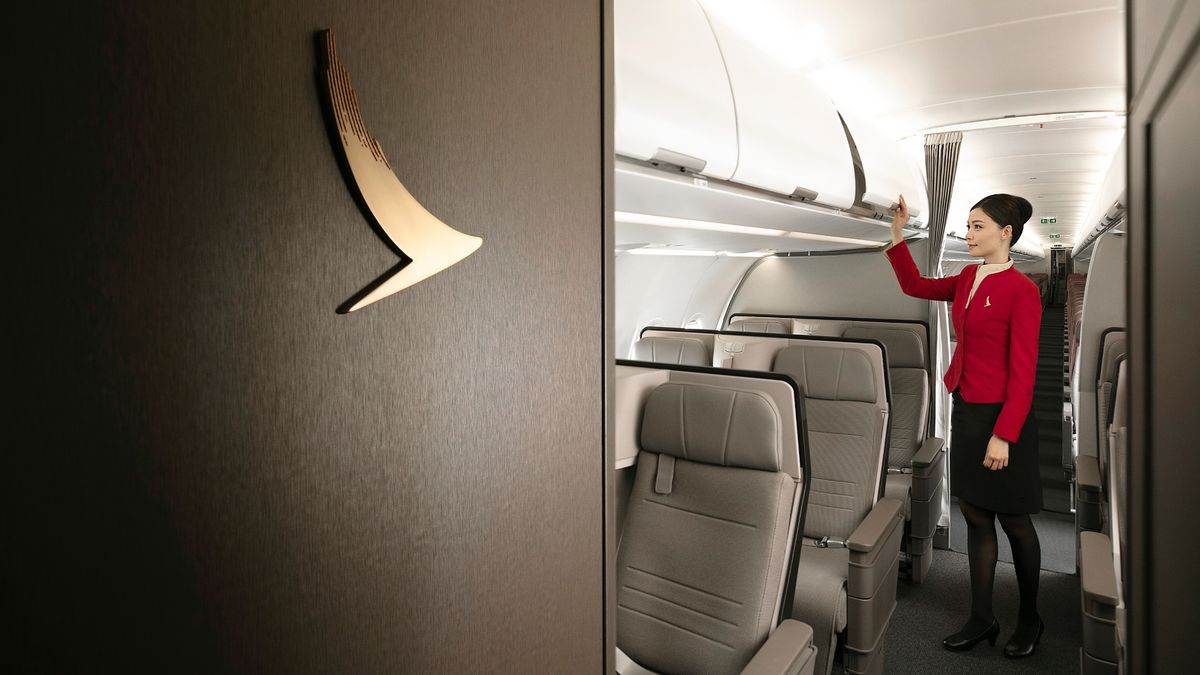
Route
Hong Kong International Airport (HKIA)
Aircraft Type
Airbus A321neo
Airline
Cathay Pacific
Notes
The Good
- A generally comfortable business class recliner for regional CX flights
- Bluetooth audio streaming to your own headphones
The Bad
- Legroom is on the tight side
- No free or even discounted WiFi in business class or for frequent flyers
X-Factor
- Cathay's modern single-aisle Airbus makes short work of short routes
Introduction
Step onto a Cathay Pacific flight darting between Hong Kong and most of Asia – including mainland China – and you could find yourself on an Airbus A321neo, the most recent addition to Cathay’s fleet.
As with its ‘classic’ A321 predecessor, the Cathay A321neo is intended for relatively short regional routes, although the more popular of those can also see larger twin-aisle jets such as the Airbus A350.
So what’s the Cathay Pacific A321neo experience like?
Cathay Pacific A321neo business class review
Given the short nature of these flights, Cathay Pacific chose a lounge chair-style recliner instead of a lie-flat bed for its A321neo regional business class.
Vivian Lo, Cathay Pacific’s General Manager of Customer Experience & Design, tells Executive Traveller that as “the majority of the (A321neo) flights are below two hours, stretched to four and at most six”, those flight durations did not require the relative luxury of a business class bed.
(Rival Singapore Airlines would disagree, having notably chosen a flatbed business class seat for its own regional Boeing 737 MAX workhorses.)
Cathay’s A321neo business class cabin is a compact affair of just 12 seats arranged in three rows of a 2-2 configuration, with one business class lavatory at the front of the cabin.
As with Cathay’s previous A321 regional business class, each of the 21”-wide seats reclines into its own fixed shell, rather than encroaching on the space of the passenger behind.
As the seatback reclines the seat edges forward and the seat pan angles up slightly, resulting in a sundeck-style ‘lazy Z’ position.
Travellers familiar with Cathay’s A321 business class will notice the colour scheme of the A321neo’s cabin and business class seats is remarkably devoid of the signature ‘Cathay green’: the palette is more subdued, with softer shades of champagne in business and charcoal in economy.
Among the many improvements in Cathay’s new regional business class is this sliding divider panel between the paired seats, which provides a degree of privacy for each passenger.
So how’s the legroom? With the seat in taxi, take-off and landing mode, there’s ample space for a relaxed stretch – although Cathay’s A321neo business class is one instance where the first row of the cabin, which is up against the bulkhead wall, offers a bit less legroom than the rows behind it.
This pinch becomes especially and uncomfortably noticeable once you recline the seat and raise the legrest: here’s how that looked in row 10 during our flight.
Our take: Cathay’s A321neo business class will more than suffice for a daytime flight but if your schedule includes a late-night leg where sleep will be paramount, choose a seat in row 11 or 12.
Each business class passenger gets a 15.6" video screen running in 4K resolution – the same as many big screen TVs at home – with a selection of native 4K content loaded onto the inflight entertainment system.
Cathay maintains passengers will notice improved quality on any shows they watch due to greater contrast, colour depth and upscaling non-4K content, although you’d honestly be hard-pressed to appreciate the difference in any aircraft cabin given the glare from open windows, overhead lights and so forth.
And while Cathay provides noise-cancelling headphones, you can have the audio streamed over Bluetooth to your own wireless headphones through a simple pairing process.
Other thoughtful touches include recessed pockets beneath the armrests (just double-check them before you get off the flight, to ensure nothing is left behind)...
... and a bright LED reading lap integrated into the top corner of the seat, which focusses its sharp beam onto your lap and where the tray table will be if extended.
High-powered USB-A and USB-C ports beneath the video screen and a universal AC socket at the front of the seat providing a trio of inflight charging options.
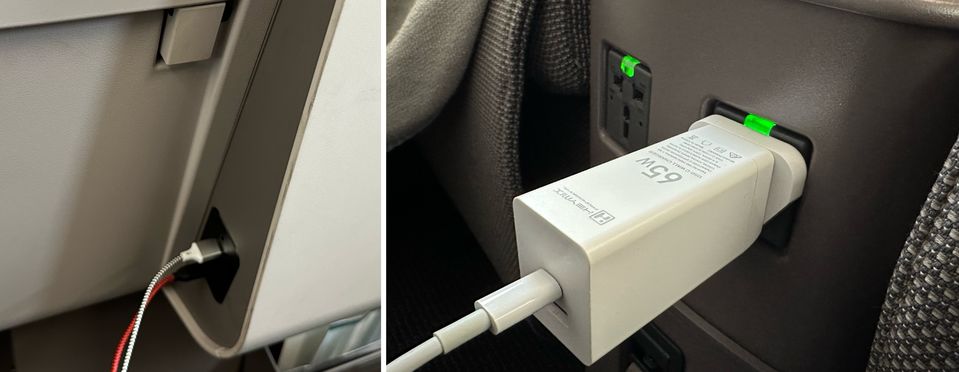
There’s typically just one main meal served in business class on Cathay’s A321neo flights, with choices to suit both Asian and Western tastes, and if you’re a regular on short Cathay flights like this there are no surprises here.
Unfortunately, while the A321neo is outfitted with WiFi, there’s no free access or even a discounted rate available to business class passengers – if you want to stay connected above the clouds you’re looking at US$9.95 for one hour of high-speed Internet access or US$12.95 connected for the entire flight.
And if you’re planning on doing any work on your laptop the front of the extending meal tray has significant bounce, so go easy on that keyboard.
Cathay Pacific A321neo economy class review
Stretched behind the business class cabin are 190 economy class seats ranked in a standard 3-3 layout, with three very small economy class lavatories at the rear of the aircraft.
Cathay chose the same economy seat for the A321neo as on its long-distance Airbus A350 flagships, although the 30-31” seat pitch can mean a squeeze at the knees once the person in front reclines their seat.
Any seat in the first row of economy (row 22) is the place to be for maximum legroom.
That’s because these seats face the bulkhead wall which separates the economy and business cabins.
The exit rows are your next best bet: shoot for rows 55 and 35, in that order.
Where there is plenty of space is in the overhead bins, as Cathay had Airbus install its upsized Airspace XL bins, which boast 60% more room compared to regular-sized compartments.
It’s a sensible decision, as the aircraft’s short regional routes are more likely to see passengers travelling with only carry-on bags.
Another passenger-pleasing feature is a handy ledge next to the cup holder which folds down from below the 11.6” HD video screen, where you can perch your own tablet or smartphone.
Visible in the photos above are the two USB ports nestled into the bottom of the video screen: one in the more common USB-A size and the other in the newer USB-C flavour.
Cathay says the USB-C socket has sufficient juice to charge your typical 13-14in laptop, which is just as well as there are no AC outlets in the economy cabin.
Meals? There’s no such thing as a great meal in economy on just about any airline, so you’ll have to be satisfied with a ‘decent’ one, and that’s what Cathay serves up – but if you have access to a Cathay lounge ahead of your A321neo flight we’d suggest eating there and considering the inflight economy meal an optional fill-up.
As in business class, there’s streaming Bluetooth audio to your own wireless headphones or earbuds.
In fact, the A321neo’s inflight entertainment system is built on the Panasonic NEXT platform, for which Cathay Pacific is the launch customer and which integrates hardware, software and services into a single almost Apple-like environment.
WiFi is available from US$9.95 for one hour or US$12.95 for the entire flight – alas, no freebies or discounts even for top-tier Cathay Diamond frequent flyers.
If you’re headed to Hong Kong, here’s how your Australian passport can be used to skip the immigration queues at Hong Kong Airport via the automated e-Channel lanes.
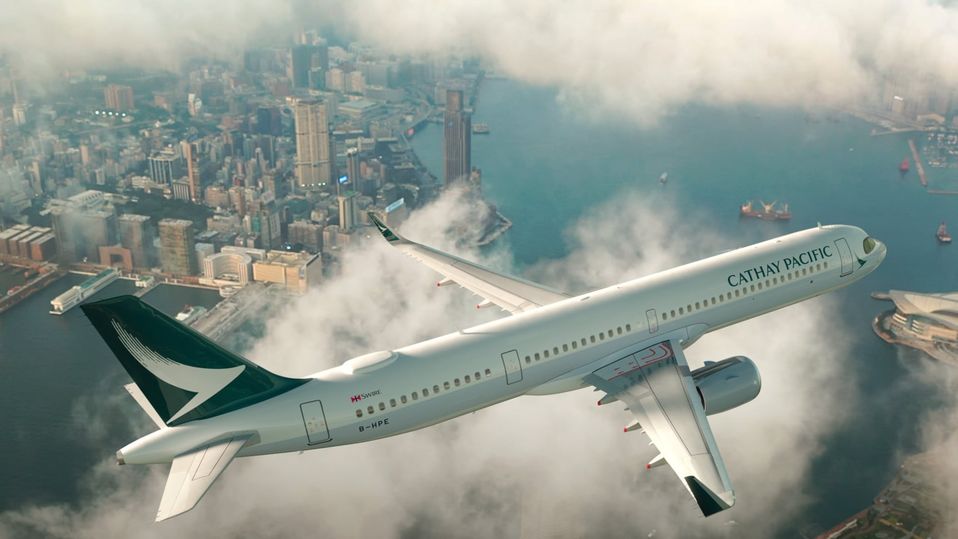
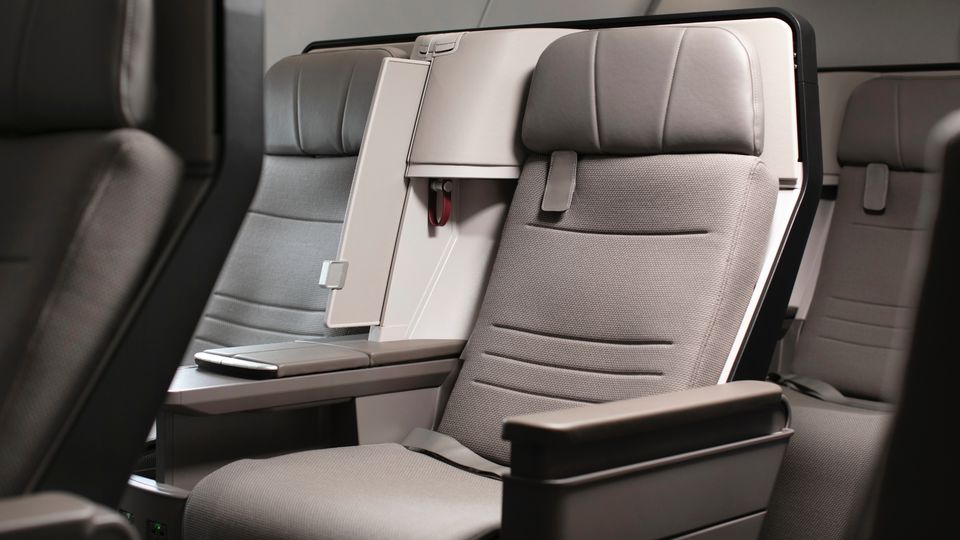
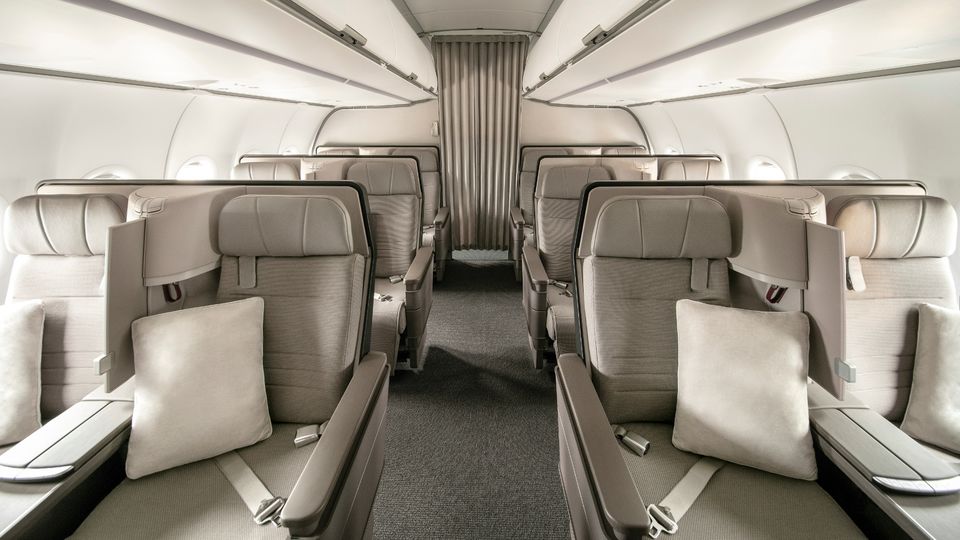
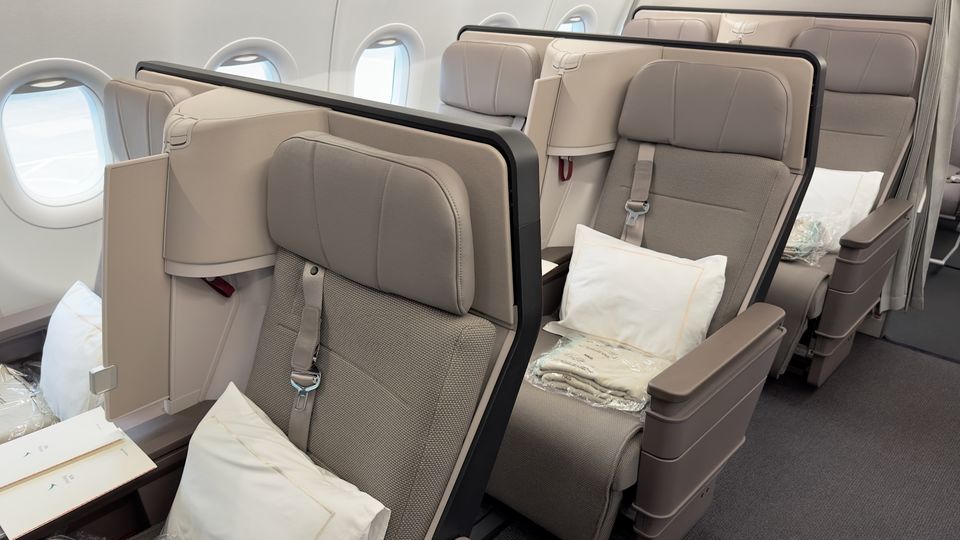
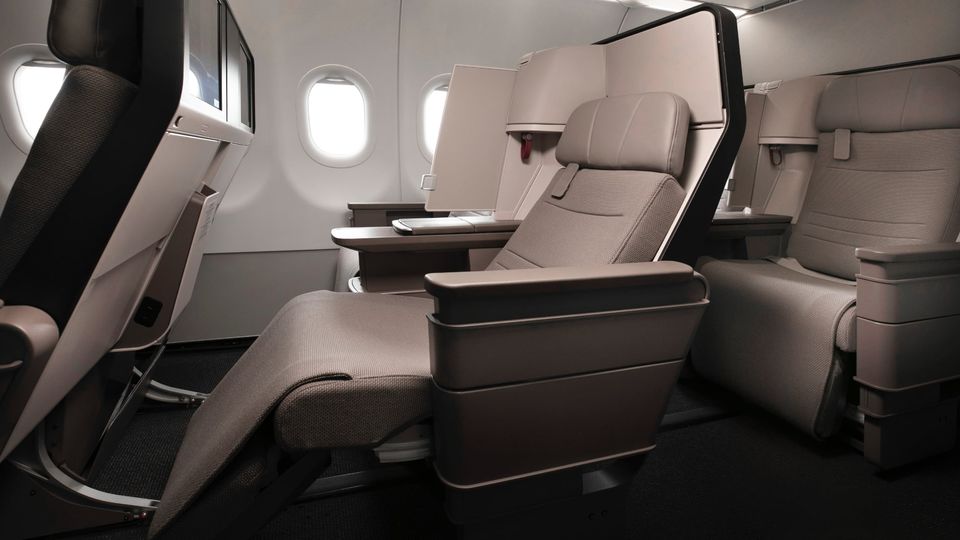
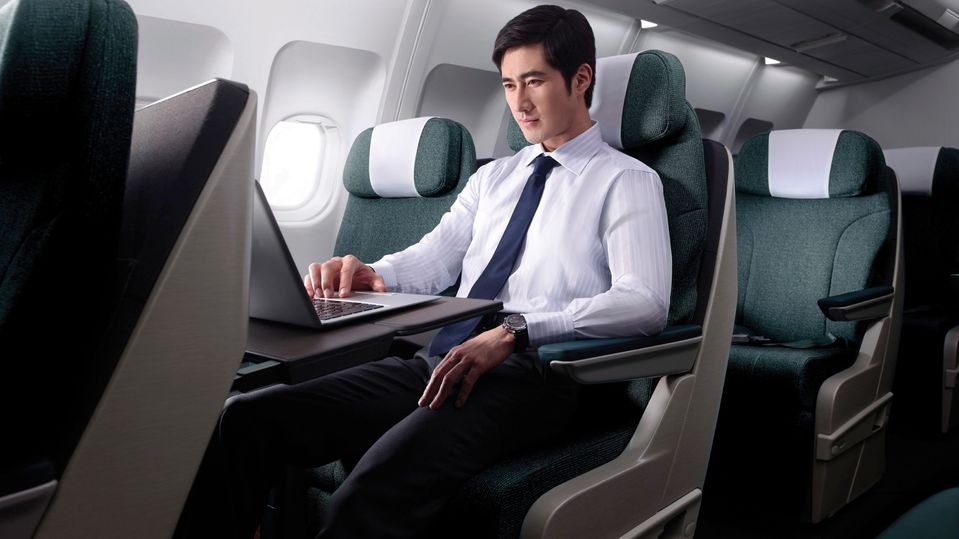
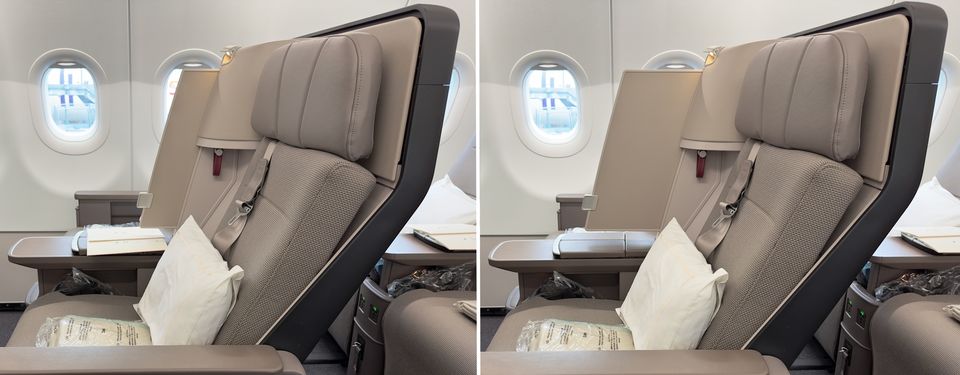


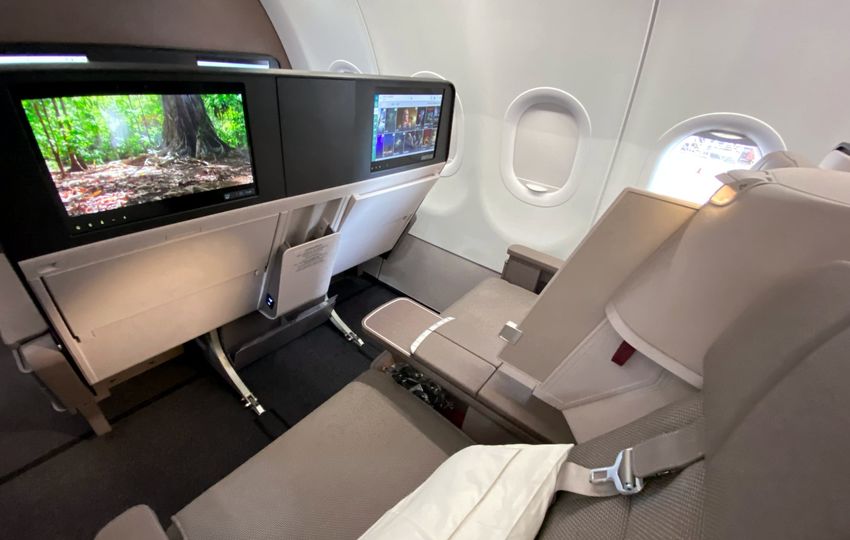
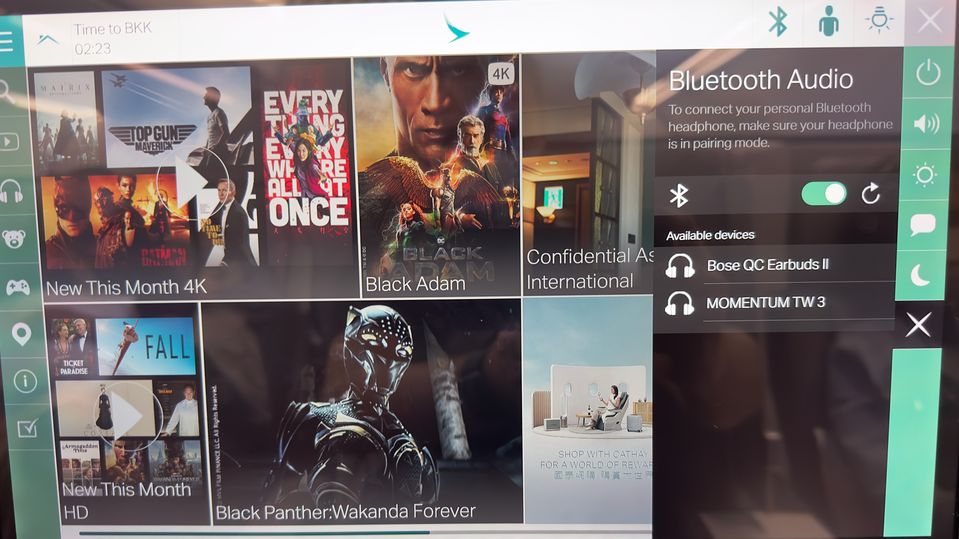

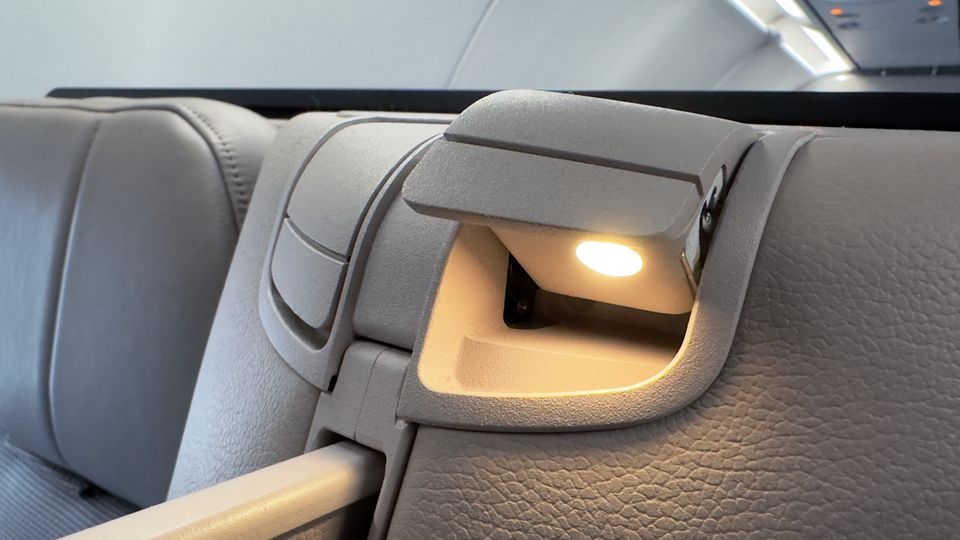
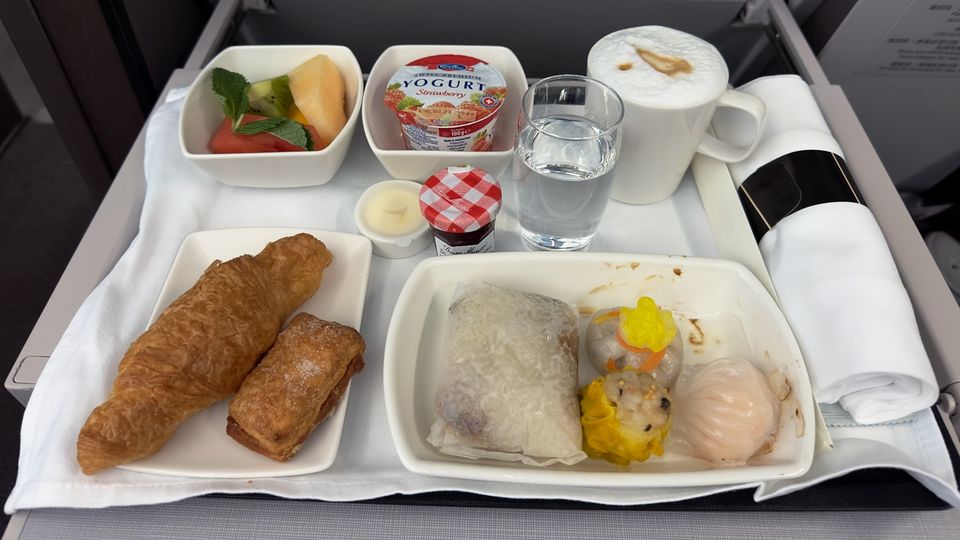

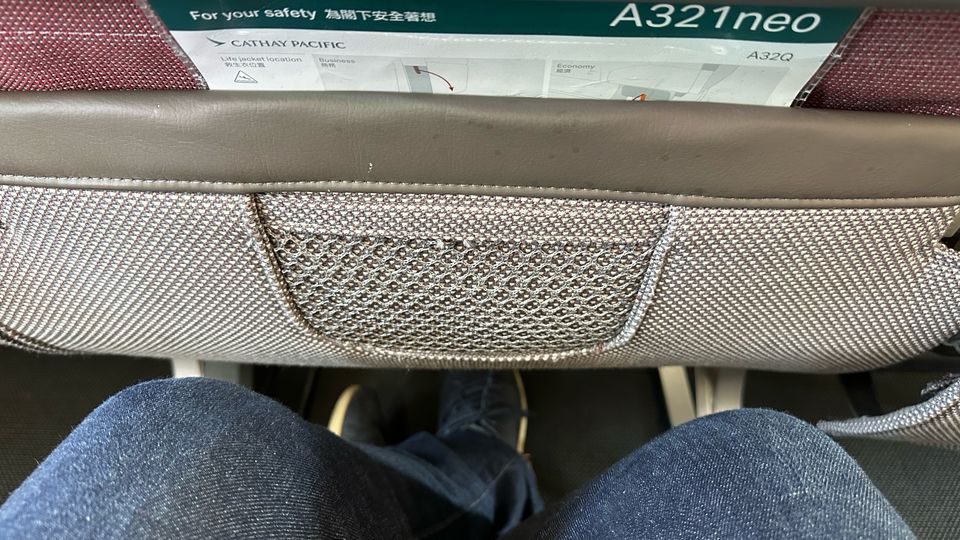
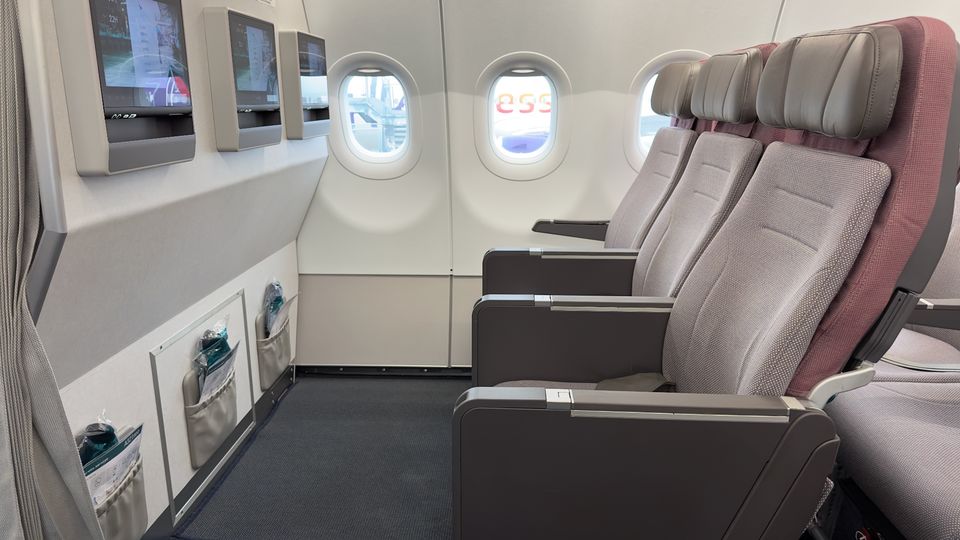
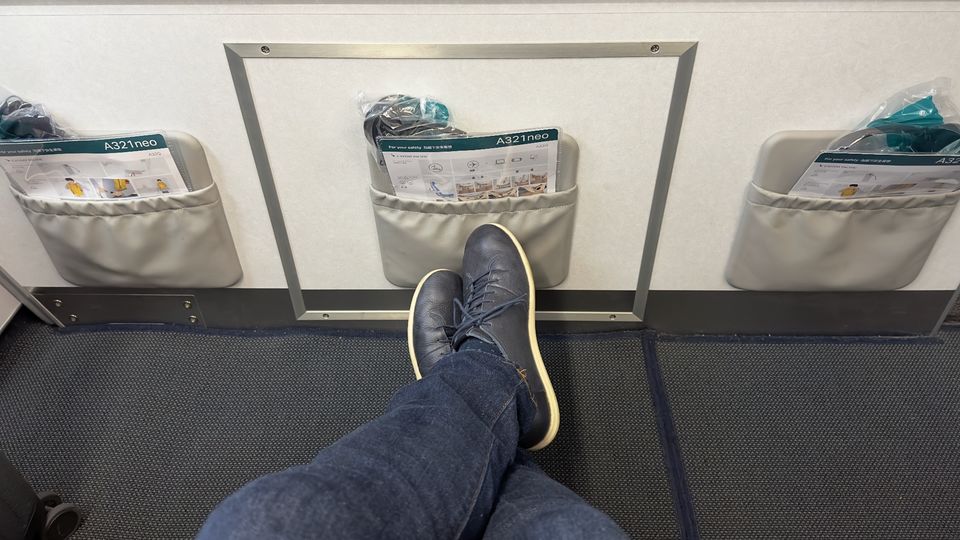
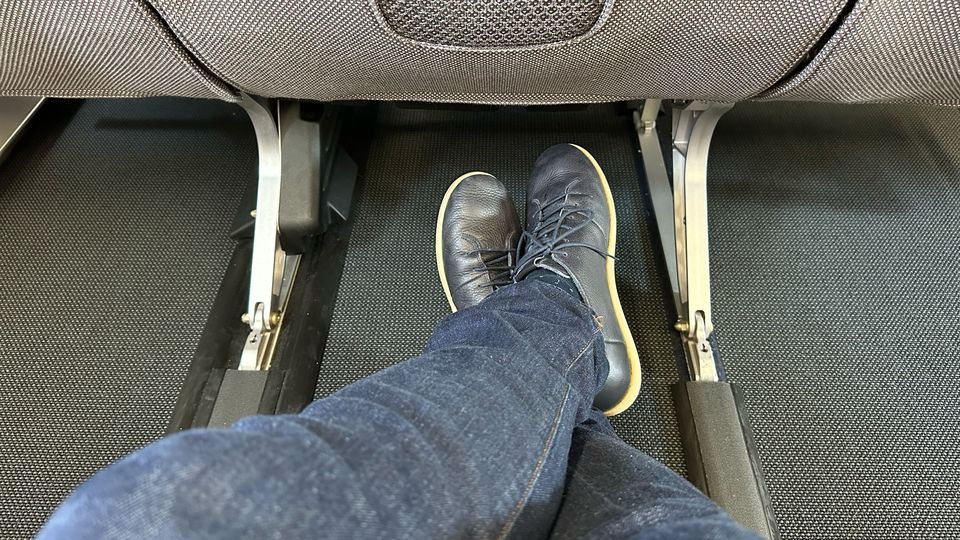
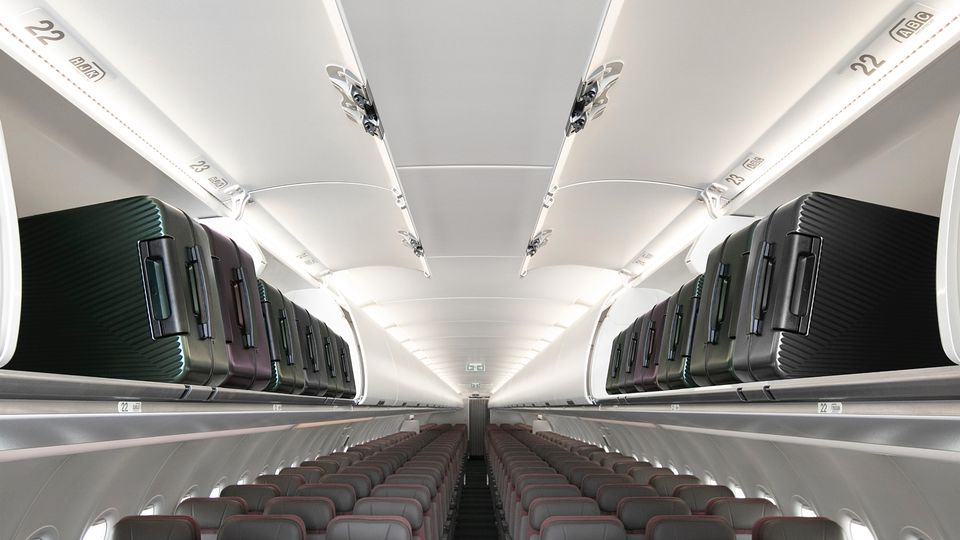


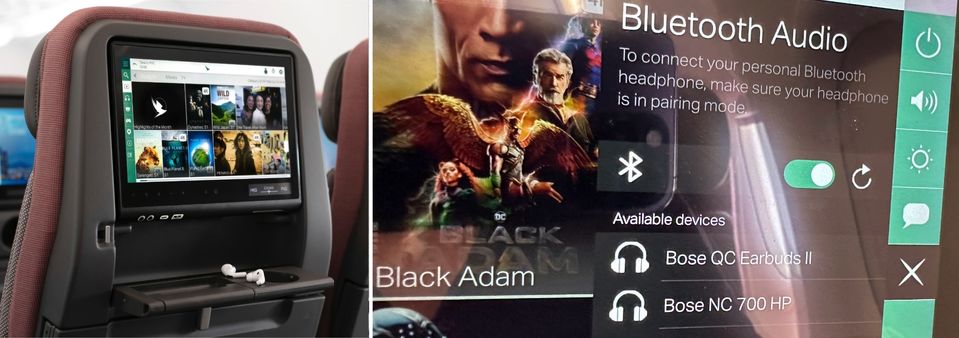
05 Sep 2023
Total posts 1
thank you for sharing. I cannot find the seat map for CX a321neo on seatguru, whihs was my goto site for choosing seat. Now I think I should update my goto settings.
Hi Guest, join in the discussion on Cathay Pacific A321neo business class, economy class